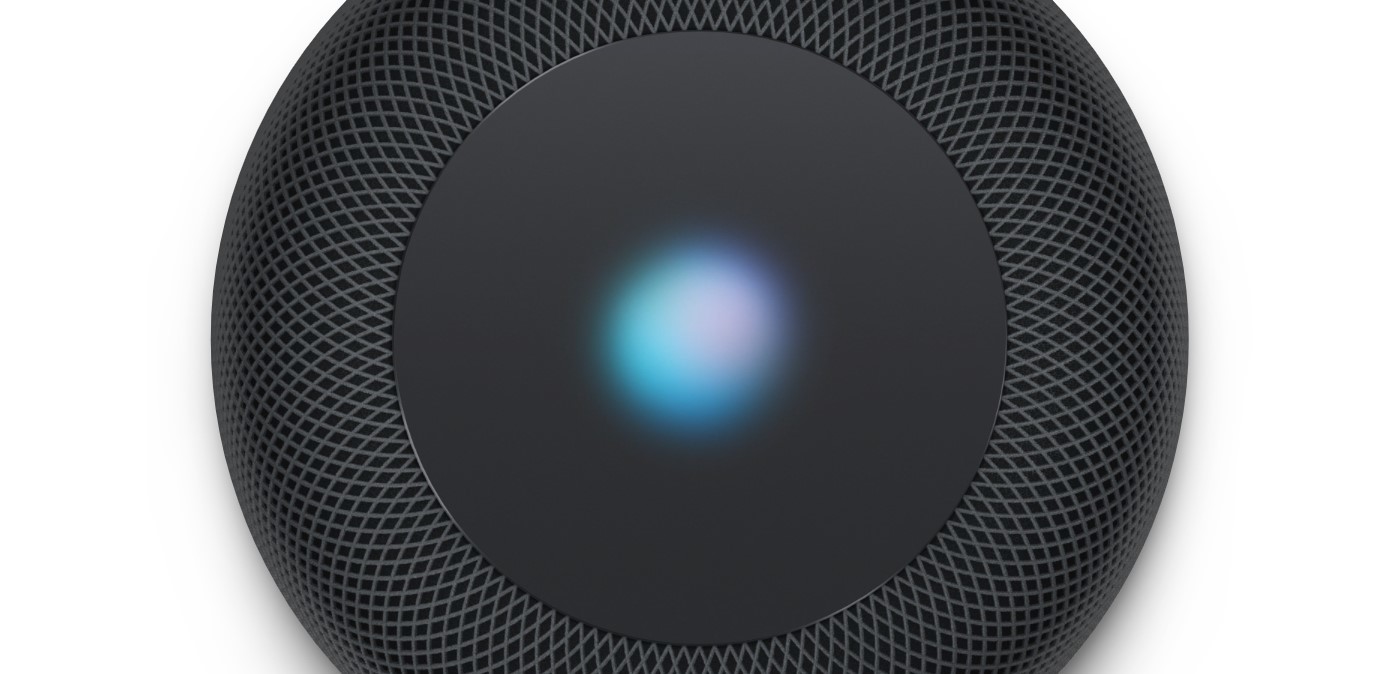Apple's smart home blind spot

Apple's smart speaker, HomePod, is expected to hit the market by the end of 2017 to take on the likes of Amazon Echo, Google Home and others.
In typical Apple fashion, however, HomePod will not work in a similar way to other smart speakers: it can't process much locally. We gleamed a hint of this from iOS 11.2, where Apple told developers what use cases would be allowed:
Siri recognizes SiriKit requests made on HomePod and sends those requests to the user’s iOS device for processing.
Whoa – so HomePod requires an iOS device to be present at all times, and the heavy lifting will be done somewhere else instead of directly on HomePod. If your iOS device isn't around at home, or the battery is dead, these commands won't work.
What's particularly odd is Apple appears to have built HomePod for a single user. As in, it does not support multiple accounts at launch and funnels all queries through a single phone + Apple ID. The opposite of how a smart home device should work, given the home is more shared than ever.
It doesn't get any better the deeper you go here. HomePod is running iOS under the hood so there's no reason Apple couldn't actually process commands locally, but it'll likely argue it's under the guise of privacy.
Even stranger, it requires you to buy into Apple Music if you want to listen to music on the device. Spotify, SoundCloud and others are non-supported use cases on day one, and Apple will not allow them (it's been two years since SiriKit launched on iOS and nada on the Spotify front still).
That means you'll need to convince each family member in your home to switch to Apple Music (and funnel their requests through your account). Sure, you could use Airplay 2, which looks like a decent upgrade, but it relies on the original device being present to continue streaming.
Yes, the HomePod is an Amazon Echo in every way but one: it doesn't want you to share. Apple's insular approach to software design is laid bare here, because in the home diversity of services and choice is a good thing.
If I want to use Spotify and my partner wants to use Google Music, she should be able to and not have to think about being locked out of our speakers. If my phone dies, I should be able to still send messages. If I leave the house, my partner should still be able to use all of HomePod's features.
Sonos, the first 'smart' speaker has done the opposite, attempting to become a sort of Switzerland for voice assistants where it welcomes any that wish to be supported. It's a smart move, and one that might help it hold ground against this new wave of devices.
Apple is so good at hardware but painfully bone-headed when it comes to software and it's frustrating to see the company make these kinds of anti-consumer decisions. The smart home shouldn't be this insular mess of walled gardens but one that accepts user choice.
Unfortunately, Apple doesn't see it that way.
P.S: This is the first re:Charged story to have a URL of its own, which will be the default in the near future so you can share them beyond just your inbox. Enjoy!
iPhone X reviews are in: overwhelmingly positive
The iPhone X is on sale from Friday and the initial reviews are in: it's great, in case you weren't expecting that. Here are the two reviews out of the lot that you should take the time to read:
I tried the iPhone X and the killer feature is its size (BuzzFeed)
The X (technically pronounced “ten,” but call it whatever you want) is really only for people who use the *heck* out of their phones. I’m talking about a ton of photo taking, video shooting, social-media performative exhibiting, gaming, web browsing, etc. This is a device for a power user, not a casual smartphoner.
The iPhone X goes to Disneyland (TechCrunch)
Intent is a part of Face ID, as well. If your phone notices that you’re not looking at it, it will dim the screen faster than normal in order to save battery. If an alert comes in and you look at your phone, it will tone down the alert sound because it “knows” it got your attention.
Nicole at BuzzFeed continues to be one of the best reviewers simply because she reviews devices for humans, not a technology audience.
Her review sings the praises of how well Face ID works and notes that the small details matter: look at the phone and your notifications will show the details, look away and they're hidden.
That ambient awareness is perhaps the most interesting thing about iPhone X: it's the first device (yes, Samsung tried and failed at this in 2014) to truly understand how you're using it and given time this may change how all computing devices react based on if they have our attention or not.
Tab Dump
Facebook, Google and Twitter stick to the script in Senate hearings
Vague promises and prepared statements were all these tech companies would commit to at Senate on Tuesday. Senators came down hard, however, asking how Facebook can magically connect billions of people together but can't detect that money is flowing in from Russia. These hearings will continue all week.
Rylo is a camera with super smarts behind it
Move over, GoPro. Rylo's new $499(!) camera is perhaps the first "smart" camera I've seen, where it films in every single direction then uses those smarts to allow you to choose what you want to focus on later. Neat, and it's already shipping.
